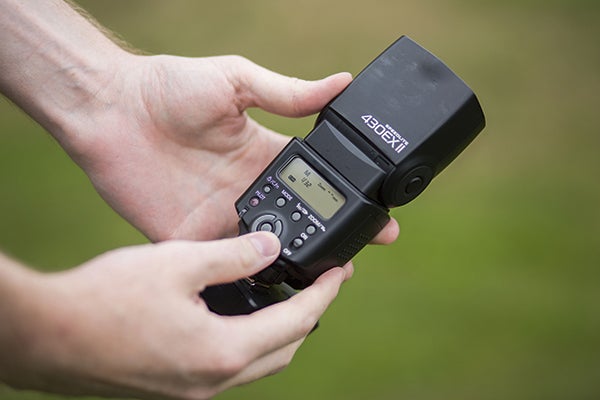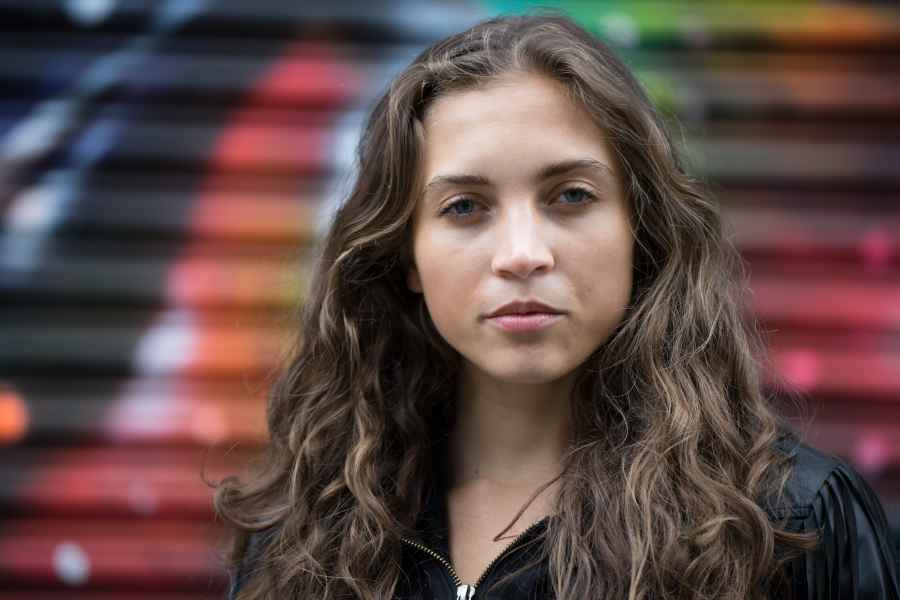One of the most popular genres of photography is portraits. You can get to work with a very simple setup, but if you’re serious about your people shots, you may want to expand your kitbag at some point. Here’s a look at some gear that portrait photographers may use.
Portrait photography kit list: camera

Many kinds of camera are great for portraits, but something with a full-frame sensor will generally yield the best results.
The good news is that many different types of cameras are great for portrait photography.
If you’re going to go for a fixed lens camera, look for one which offers a wide aperture, such as premium bridge camera or a premium compact camera.
Any kind of interchangeable lens camera also works extremely well, whether it’s a compact system camera or DSLR. Arguably however, a full-frame camera works best as you can generally get a better shallow depth of field effect.
Portrait photography kit list: lenses

There are variety of different lenses which work well for portraits, which often depends on the size of the sensor that you’re using.
Focal lengths between 50 and 85mm work very well for portraits, as wider focal lengths can cause portraits to have a distorted look. If you’re using a full-frame camera, the focal length of your lens is what it says on the lens itself. However, if you’re using an APS-C sensor, you need to bear in mind the 1.5 or 1.6 crop factor. If you’re using a Four Thirds sensor, then you’ll need to consider a 2x crop factor.
Therefore, a 50mm lens on an APS-C camera actually translates to 75mm or 80mm, very close to the classic 85mm portrait length.
Macro lenses also work well for portrait photography as they bring out a good level of detail and also tend to be at available at good focal lengths for portrait photography.
Finally, a 35mm focal length can be good for “environmental” portraits where you include the subject as well as some of their surroundings.
Whichever lens you look for, something with a large aperture, such as f/1.2, f/1.4, f/1.8 or f/2.8 to really isolate the subject from the background.
Portrait photography kit list: flashes, triggers, soft boxes and stands

You can take some beautiful portraits with natural light, but adding flash is the next step to creative effects. You may want to start off with just one flash, mounted on to your camera. With this you can bounce light from walls and ceilings to create a lovely soft effect.
The next step is to create a flash system which uses multiple flashes, triggers, soft boxes and stands. This is quite an advanced setup, but is worth considering if portraits are going to be your main genre.
Essential guide to off-camera flash
Westcott Apollo Orb 43in Octagonal Light Modifier review
Portrait photography kit list: reflectors

A reflector is a simple piece of kit which can make a big difference to your finished portraits when working in natural light.
Look for a reflector which has different coloured sides, and is collapsible so you can fit it easily into your bag. A “five-in-one” reflector will generally consist of a diffuser, gold side, silver side, black side and white side. The gold side will create a warm glow, while a silver side can be used to create a cooler effect. The white side reflects the most “accurate” light, while the black side can help reduce the light if there’s too much. The diffuser can be used to soften harsh light which is falling onto the face, too.
Lastolite Circular Bottletop Reflector 120cm kit review
Portrait photography kit list: memory cards and batteries

When it comes to memory cards, perhaps you want to have one or two large capacity memory cards so you don’t need to be changing all the time. On the other hand, using fewer smaller capacity cards helps reduce the risk of losing all your shots if one of them gets lost or corrupted. For portrait photography you don’t need to look for super fast memory cards as it’s unlikely you’ll be shooting at particularly fast frame rates.
You may also want to think about some sort of back-up device, which allows you to back up your shots on the go, rather than waiting to get home and transfer – the WD My Passport Wireless Pro is a great option.
It’s always a good idea to have a spare battery, especially if you’re anticipating a portrait shoot lasting a long time, or it’s in a cold location.
WD My Passport Wireless Pro review
Portrait photography kit list: tripod

Although a tripod isn’t essential for portrait photography work in the same way that it’s pretty much essential for landscapes, portrait photographers can still make good use of a tripod in certain conditions.
It can be useful, for example, if you’re shooting a model and need to hold a reflector in place. In which case, you may also want to invest in a remote release so you can trigger the shutter without having to be next to the camera.
A tripod can also be useful if you’re going for a series of shots which all have the same or similar composition. As always, look for a sturdy and steady tripod – carbon fibre is best – but just choose the best you can afford.
Cullmann Mundo 525M tripod review
MeFoto Backpacker Air tripod review
3 Legged Thing Equinox Albert review
Novo Explora T10 carbon fibre tripod kit review
Portrait photography kit list: backdrops
Many portrait photographers prefer to find incidental or natural backdrops, but sometimes finding one of those is tricky. That’s where a portrait backdrop can be useful – especially if you do a lot of studio portraits.
You can get backdrops in lots of different varieties, from plain white, to bright colours, to those which mimic walls, metal, wood and so on. You could look for a backdrop stand which allows you to place different backdrops on it – or you could even make your own backdrops if you’re handy with a sewing machine.







